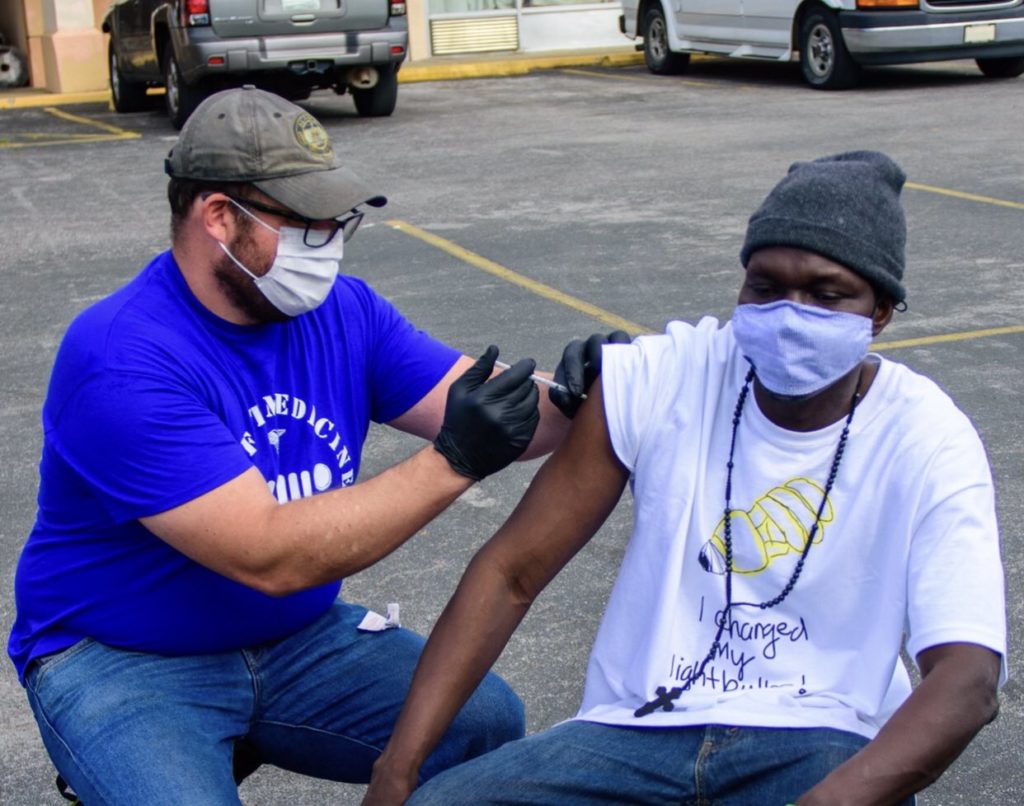
The 10-day safety pause on the Johnson & Johnson COVID vaccine didn’t seem to weaken demand in Nashville. The city resumed using the one-shot vaccine in the past week and has seen it become the preferred option.
Health officials wanted to give people a choice after the J&J doses were pulled for a safety review related to a rare blood-clotting reaction in a handful people, most of them women. So when Metro began using J&J again last Tuesday at the old Kmart site on Murfreesboro Road, they made sure to give people the option of taking the Pfizer shots instead. But they found most people didn’t want it.
“It was the longest line we’ve seen in a couple of weeks, and they were there for the Johnson & Johnson,” says Metro Health’s Rachel Franklin. “It was very promising.”
One the first day, twice as many people asked for the one-dose option. Later in the week, demand was split 50-50 between Johnson & Johnson and Pfizer.
There have been fears nationally and in Nashville that the safety pause would scare people away from getting the Johnson & Johnson vaccine, which just happens to be the easiest to use.
In Tennessee, the city of Nashville has been the biggest user of J&J doses, giving 10,000 in one day at Nissan Stadium and a few thousand at Hadley Park near Tennessee State University, targeting the center of the city’s historically Black neighborhoods.
While the Murfreesboro Road vaccination site will continue offering Pfizer doses as an option, the city is relying on the one-shot J&J vaccine popup events, including over the weekend at Hadley Park and this coming weekend at the Tennessee Craft Fair.
Slowing vaccinations
While Nashville has led most of Tennessee in vaccination rates, the demand continues to slow. Roughly 40% of residents have at least one dose. At the Murfreesboro Road site, fewer than 150 people a day were being vaccinated last week — less than half of what’s expected. And that’s despite no longer requiring appointments.
City health officials say they are encouraged that the numbers are better for anyone 55 and over, with roughly two-thirds having at least started vaccination. Racial and ethic gaps are also shrinking, now with a larger share of Hispanic seniors vaccinated than any other group tracked by the city.
As expected, adults under age 35 are the slowest to get vaccinated. Dr. Gill Wright, the city’s medical director, says getting that group vaccinated would help protect those who can’t be vaccinated and could prevent a surge in youthful patients like has been seen in Michigan.
“This is especially important for parents, older siblings and family members,” he says. “Help protect children for whom the vaccine has not yet been approved.”

